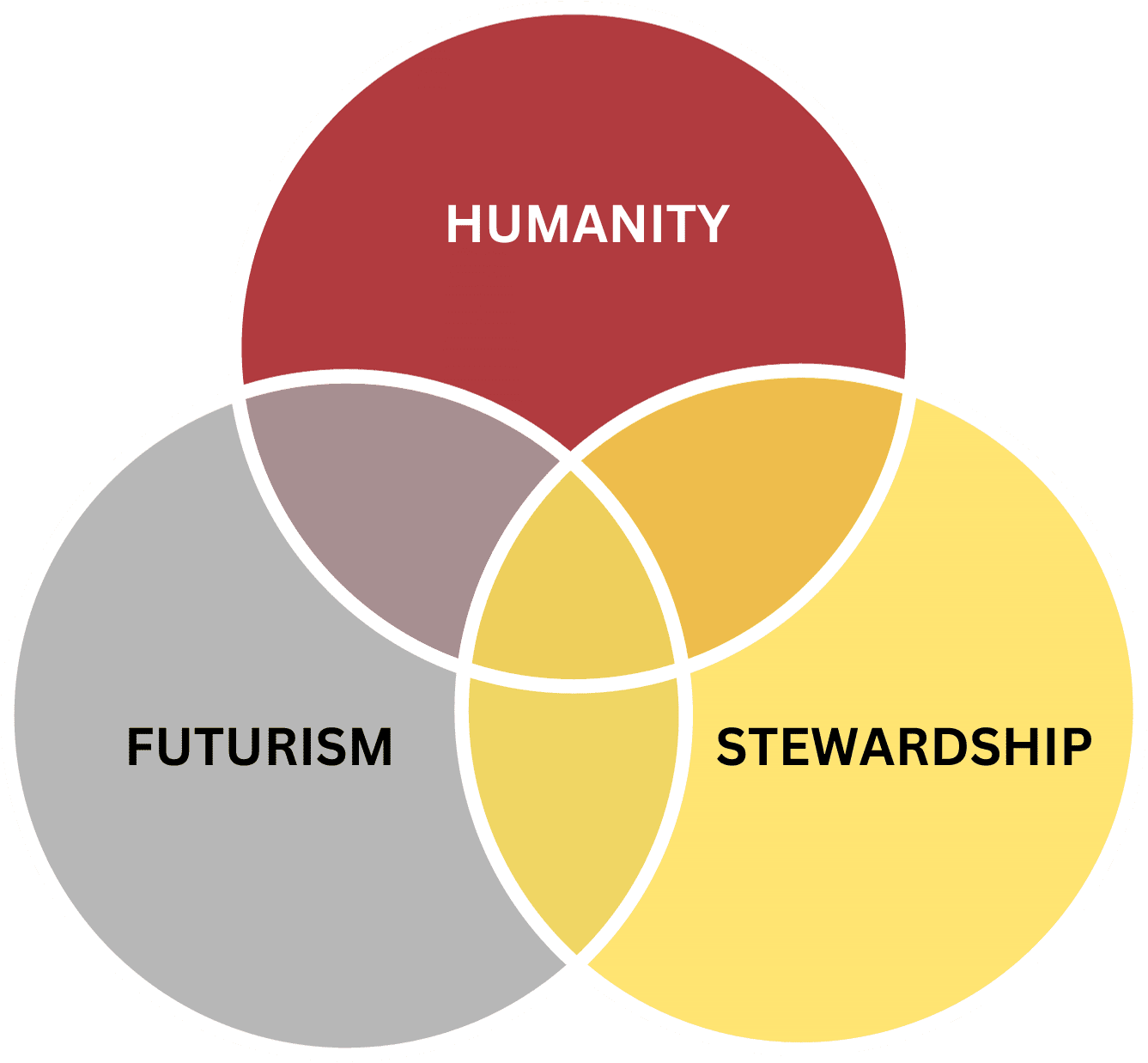
Leaders require capabilities in three areas:
Humanism
In an era marked by diversity, complex challenges, and heightened awareness of emotional well-being, leaders with empathy and humanity are not just desirable but essential. They play a pivotal role in creating inclusive, innovative, and safe workplaces, nurturing engaged and motivated teams, and guiding organizations through times of uncertainty with care and understanding.
Stewardship
The role of leaders as stewards of their organizations and the world is more crucial than ever. It entails not only effective management and profitability but also ethical decision-making, environmental responsibility, and a commitment to the well-being of society at large. Responsible leadership is essential for addressing the complex challenges of our time and ensuring a sustainable, equitable, and prosperous future for all.
Foresight
Today's leaders need to develop strategic foresight to navigate the complexities of today's business landscape successfully. Foresight practices enable leaders to anticipate change, prepare for disruption, identify opportunities, and drive innovation. Ultimately, they are better at positioning their organizations for long-term growth and sustainability.
Select Client Engagements

Team Effectiveness
After a Rift
Doctoral theses in the coming years will undoubtedly delve into the complex impacts on teams during the pandemic lockdown. Initial research suggested heightened productivity in remote work settings, only to be followed by findings indicating a decline in creativity and challenges in handling ill-defined, collaborative tasks. The strain on organizational culture became evident, prompting a closer examination of these dynamics.

How the Global Pandemic Led to Better Learning Outcomes
Before the onset of the Covid era, leaders overwhelmingly preferred face-to-face learning experiences. This inclination guided our approach until the pandemic altered the landscape in 2020. A premiere leadership development session had to transition overnight to a 100% virtual format. While transferring live sessions to Zoom was technically feasible, it proved to be a challenging and less-than-ideal experience, subjecting participants to prolonged days with minimal learning outcomes.

Scenario Capabilities for Planning Function
For many years, our organization has delivered impactful scenario experiences within senior leadership workshops. The success of these endeavors caught the attention of one of our esteemed clients, leading to positive feedback that resonated with their strategic planning department. Recognizing the value of foresight work, the planning department sought to enhance their capabilities in this area and approached us to conduct a series of scenario planning workshops for their entire team of over fifty individuals.

